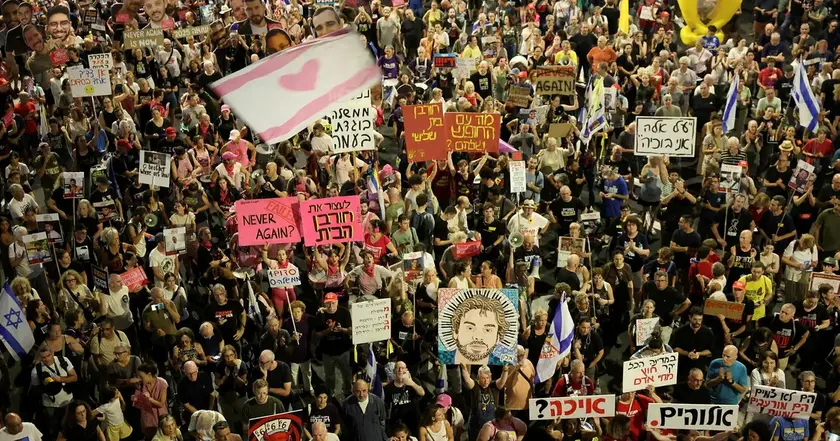T4K3.news
Tel Aviv rallies call for end to war and hostage release
Hundreds of thousands take to the streets nationwide, urging a return of hostages and an end to the Gaza war as political leaders weigh possible deals.
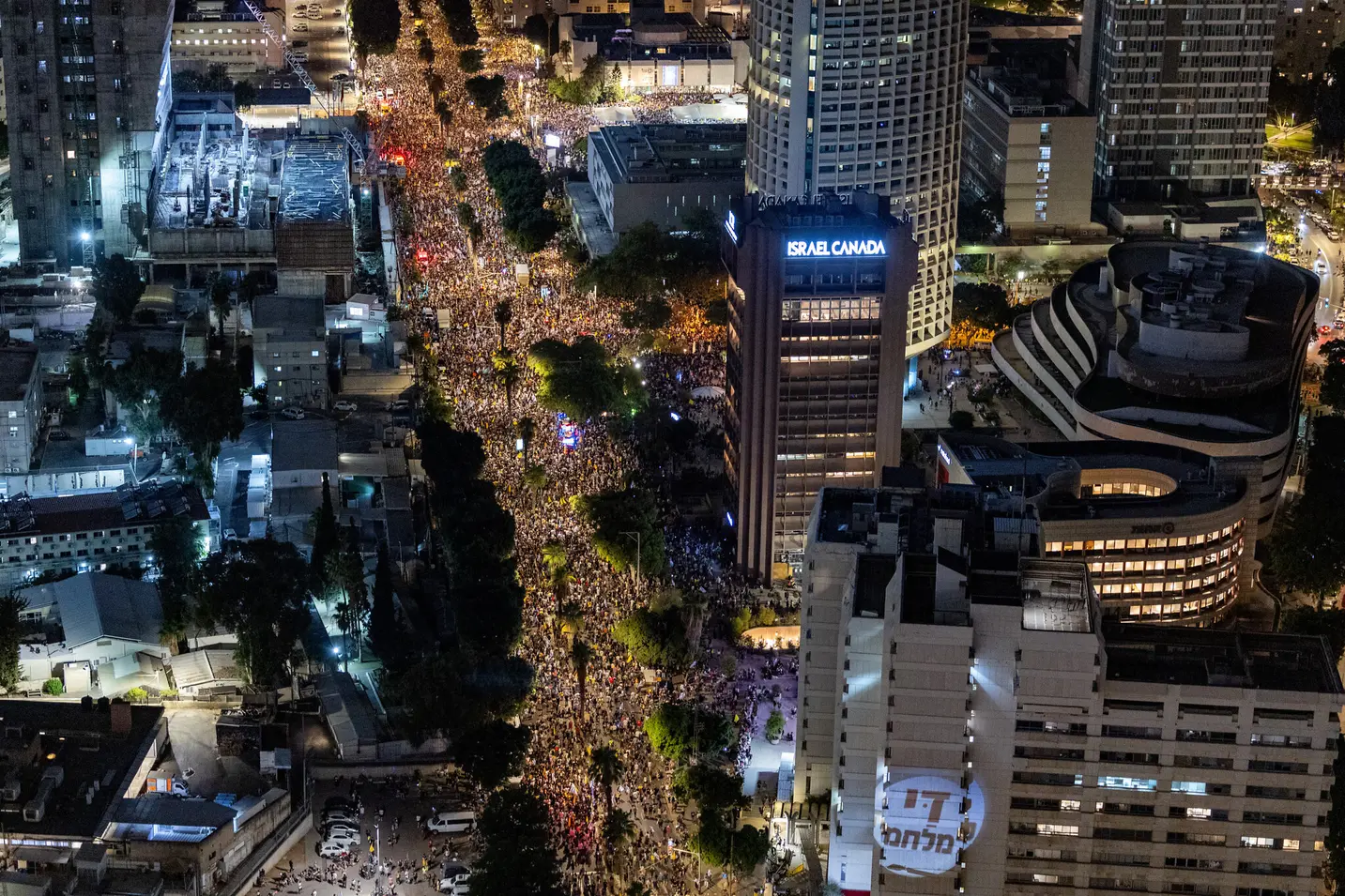
Rallies across Israel push for a ceasefire and a deal to free hostages as families appeal to leaders and authorities face street confrontations.
Tel Aviv crowds call for end of war and release of hostages
Hundreds of thousands gathered in Tel Aviv on Sunday night, marking a national day of protests and strikes aimed at pressuring the government to end the Gaza war and secure the release of hostages. The Hostages and Missing Families Forum put the Tel Aviv turnout at more than half a million, while protests across the country drew as many as a million participants according to organizers. Roads were blocked in major cities as demonstrators pressed for a comprehensive peace and hostage deals, even as police moved to reopen streets and restore traffic.
The rally featured emotional appeals from families of the captives. Fathers spoke of their sons in captivity, accusing leaders of sacrificing loved ones for political goals. A video shown at the event included messages from hostages and relatives, intensifying the sense of urgency surrounding negotiations. Separately, some released hostages addressed U.S. President Donald Trump, urging him to push for an end to the war and for safe returns. Protests also spread to Jerusalem, Haifa and other towns, reflecting wide public pressure on a government already facing internal divisions over strategy in Gaza.
Security and political leaders were in attendance or nearby, including former defense minister Yoav Gallant and President Isaac Herzog. While Netanyahu has framed discussions as requiring a comprehensive and unconditional hostage release, reports aired during the day suggested a possible shift toward phased or partial deals under certain conditions. The mixed signals come as negotiators seek ways to secure a halt to fighting while securing living hostages and preventing renewed escalation.
Key Takeaways
"My Rom has no time the hostages have no time"
Father Ofir Braslavski speaking at the Tel Aviv rally
"My son Nimrod is suffering so that the government can build settlements in Gaza and I refuse to let him be sacrificed"
Yehuda Cohen addressing the crowd
"If the Netanyahu government is not willing to do this, they should quit and allow someone more responsible to do so"
Cohen reiterating demands for a comprehensive deal
"We demand a comprehensive deal and an end to the war"
Families urging policy change
The size of the turnout underscores a durable public appetite for a clear path to ending the Gaza war and rescuing hostages, a stance that can constrain political space for hardline postures. By foregrounding families and personal stories, the protests transform foreign policy into a domestic accountability issue, pressuring leaders to show tangible progress rather than procedural rhetoric. At the same time, the already fragile consensus in Israeli politics faces new stress from competing views on how to balance security needs with urgent humanitarian and diplomatic goals.
The weekend also highlights a broader strategic moment. If reports of openness to partial deals gain traction, Netanyahu may face a choice between preserving a hardline stance and accepting a phased arrangement that could secure some hostages home and ease military pressures. The involvement of international figures, including Trump, adds a new diplomatic layer, but it could also complicate decisions by creating expectations that are hard to meet. The rift within hostage families between those backing protests and those urging restraint adds another layer of complexity that could influence how the government negotiates and how public sentiment shifts in the weeks ahead.
Highlights
- Noise for the hostages not for the war
- Stay loud for the hostages until every one comes home
- A comprehensive deal is the only path to peace
- The hostages belong to the nation not to a battlefield
Political sensitivity and potential public backlash risk
The protests touch a highly sensitive political issue with potential for clashes, backlash, and escalated tensions between political camps. Publicized calls from families and international figures could harden positions or trigger security concerns as streets remain volatile.
The coming weeks will test whether public passion translates into durable policy changes or fades as talks continue.
Enjoyed this? Let your friends know!
Related News
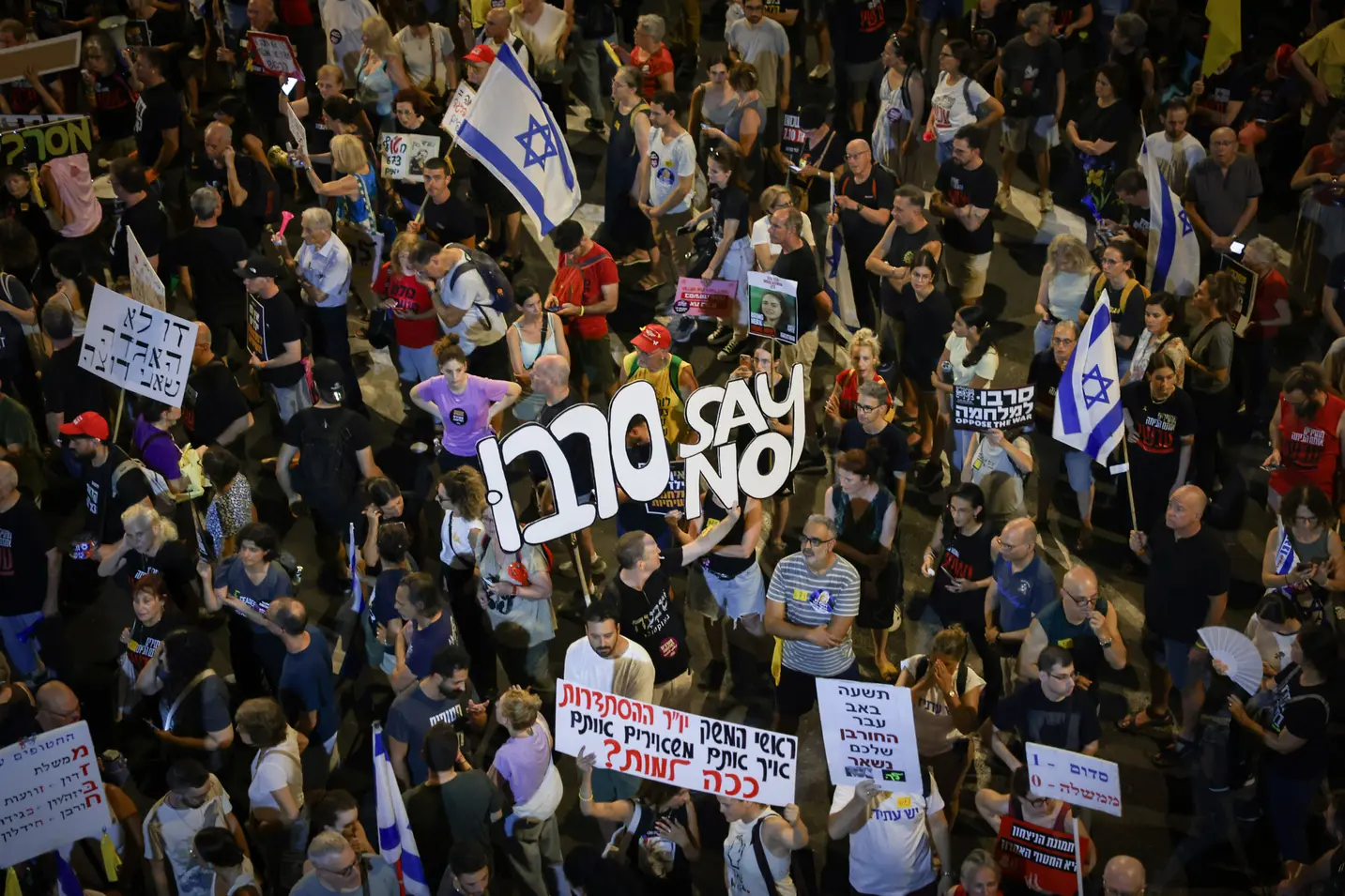
Israel faces mass protests over Gaza City plan
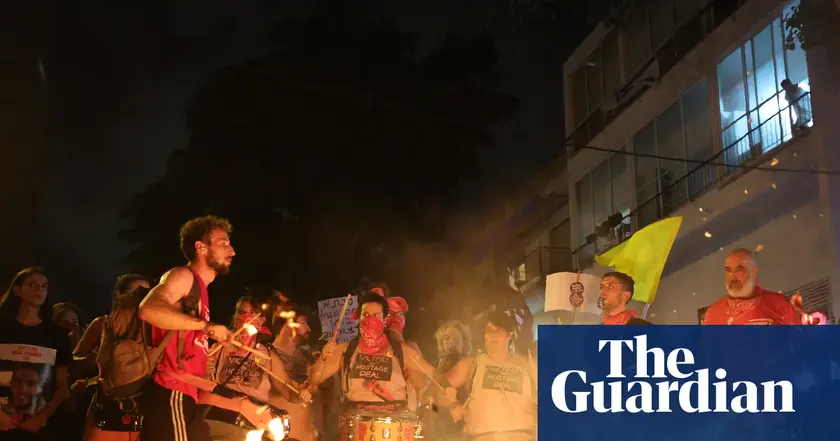
Protests fill Tel Aviv as calls grow to end Gaza war
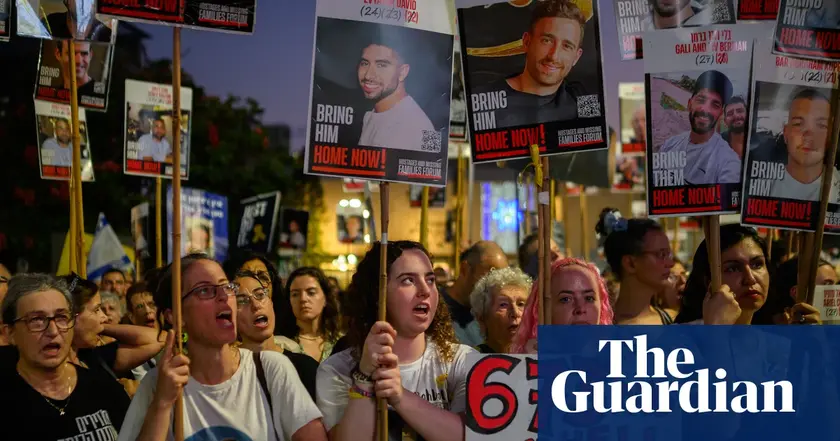
Tel Aviv protests challenge Netanyahu plan escalate Gaza war
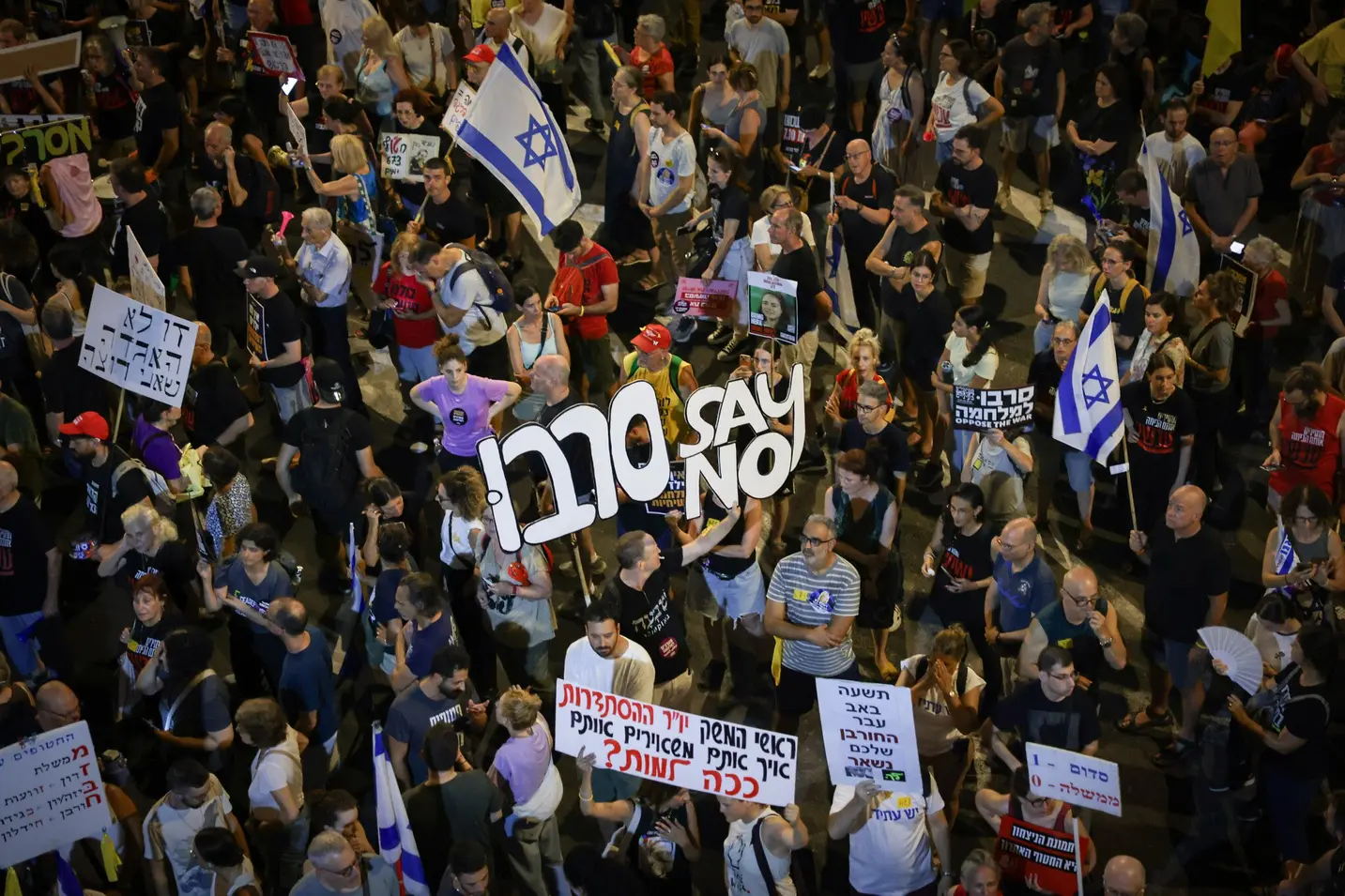
Protests surge as Gaza City plan tests Israeli resolve

IDF says hospital strike targeted Hamas camera

Protests rise as Netanyahu faces pressure over hostages

Protests in Israel demand Gaza ceasefire and hostage deal

Tel Aviv crowd pushes for hostage deal
